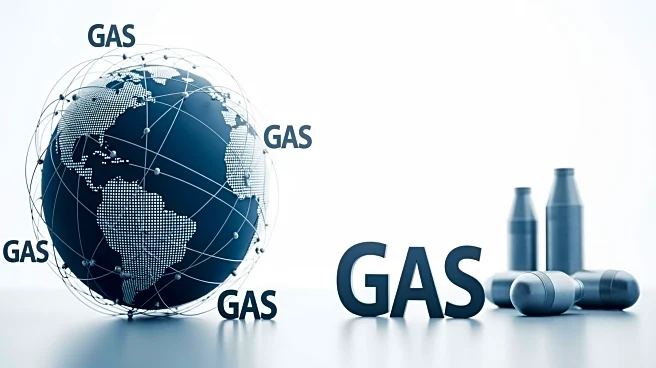What's Happening?
The United States and Qatar have expressed significant concerns over the European Union's Corporate Sustainability Due Diligence Directive (CSDDD), which they argue threatens the affordability and reliability of energy supplies, particularly LNG, to Europe.
The directive, effective since July 2024, mandates companies to address human rights and environmental impacts within their operations and supply chains. U.S. Energy Secretary Chris Wright and Qatari Minister of State for Energy Affairs Saad Sherida Al-Kaabi have sent a letter to the European Commission, warning that the directive could harm the EU's industrial economy and lead to higher energy prices. The letter suggests that the directive's provisions could disrupt trade and investments, urging the EU to reconsider or repeal the directive.
Why It's Important?
The directive's impact on LNG exports is significant as it could affect the energy security of the EU, which is striving to reduce its reliance on Russian gas. The U.S. and Qatar's stance highlights the geopolitical tensions surrounding energy policies and the balance between environmental accountability and economic interests. The directive's potential to increase energy costs could have broader implications for the EU's industrial competitiveness and its ability to meet climate targets. The situation underscores the complex interplay between international energy trade and domestic policy objectives, with potential repercussions for global energy markets.
What's Next?
The European Parliament is set to review the CSDDD, with potential amendments to address the concerns raised by the U.S. and Qatar. The outcome of these negotiations could influence future EU energy policies and its relationships with major LNG suppliers. The EU's decision will likely impact its climate strategy and its ability to attract foreign investments. Stakeholders, including energy companies and environmental groups, will be closely monitoring the developments, as the directive's future could set a precedent for international corporate sustainability standards.
Beyond the Headlines
The directive's challenge highlights the ethical and legal dimensions of enforcing corporate accountability in global supply chains. It raises questions about the balance between environmental responsibility and economic growth, and the role of international cooperation in addressing climate change. The situation also reflects the broader cultural shift towards sustainability and the resistance from traditional energy sectors. The EU's response could influence global norms on corporate sustainability and shape the future of international trade agreements.
















